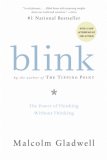Summary | Excerpt | Reading Guide | Reviews | Beyond the Book | Readalikes | Genres & Themes | Author Bio

Critics' Opinion:
Readers' Opinion:
First Published:
Jan 2005, 288 pages
Paperback:
Apr 2007, 320 pages
 Book Reviewed by:
Book Reviewed by:
BookBrowse Review Team
Buy This Book
"It's weird," she went on. "You don't get the sense that they are an unhappy couple when they come in. And when they were finished, they were instructed to watch their own discussion, and they thought the whole thing was hilarious. They seem fine, in a way. But I don't know. They haven't been married that long. They're still in the glowy phase. But the fact is that she's completely inflexible. They are arguing about dogs, but it's really about how whenever they have a disagreement, she's completely inflexible. It's one of those things that could cause a lot of long-term harm. I wonder if they'll hit the seven-year wall. Is there enough positive emotion there? Because what seems positive isn't actually positive at all."
What was Tabares looking for in the couple? On a technical level, she was measuring the amount of positive and negative emotion, because one of Gottman's findings is that for a marriage to survive, the ratio of positive to negative emotion in a given encounter has to be at least five to one. On a simpler level, though, what Tabares was looking for in that short discussion was a pattern in Bill and Sue's marriage, because a central argument in Gottman's work is that all marriages have a distinctive pattern, a kind of marital DNA, that surfaces in any kind of meaningful interaction. This is why Gottman asks couples to tell the story of how they met, because he has found that when a husband and wife recount the most important episode in their relationship, that pattern shows up right away.
"It's so easy to tell," Gottman says. "I just looked at this tape yesterday. The woman says, ‘We met at a ski weekend, and he was there with a bunch of his friends, and I kind of liked him and we made a date to be together. But then he drank too much, and he went home and went to sleep, and I was waiting for him for three hours. I woke him up, and I said I don't appreciate being treated this way. You're really not a nice person. And he said, yeah, hey, I really had a lot to drink.'" There was a troubling pattern in their first interaction, and the sad truth was that that pattern persisted throughout their relationship. "It's not that hard," Gottman went on. "When I first started doing these interviews, I thought maybe we were getting these people on a crappy day. But the prediction levels are just so high, and if you do it again, you get the same pattern over and over again."
One way to understand what Gottman is saying about marriages is to use the analogy of what people in the world of Morse code call a fist. Morse code is made up of dots and dashes, each of which has its own prescribed length. But no one ever replicates those prescribed lengths perfectly. When operators send a message—particularly using the old manual machines known as the straight key or the bug—they vary the spacing or stretch out the dots and dashes or combine dots and dashes and spaces in a particular rhythm. Morse code is like speech. Everyone has a different voice.
In the Second World War, the British assembled thousands of so-called interceptors—mostly women—whose job it was to tune in every day and night to the radio broadcasts of the various divisions of the German military. The Germans were, of course, broadcasting in code, so—at least in the early part of the war—the British couldn't understand what was being said. But that didn't necessarily matter, because before long, just by listening to the cadence of the transmission, the interceptors began to pick up on the individual fists of the German operators, and by doing so, they knew something nearly as important, which was who was doing the sending. "If you listened to the same call signs over a certain period, you would begin to recognize that there were, say, three or four different operators in that unit, working on a shift system, each with his own characteristics," says Nigel West, a British military historian. "And invariably, quite apart from the text, there would be the preambles, and the illicit exchanges. How are you today? How's the girlfriend? What's the weather like in Munich? So you fill out a little card, on which you write down all that kind of information, and pretty soon you have a kind of relationship with that person."
This is the full text of Chapter 1 of Blink (pages 18-47). Copyright © 2005 by Malcolm Gladwell. All rights reserved. No part of this book maybe reproduced without written permission from the publisher, Little, Brown & Co.





The Funeral Cryer by Wenyan Lu
Debut novelist Wenyan Lu brings us this witty yet profound story about one woman's midlife reawakening in contemporary rural China.
Your guide toexceptional books
BookBrowse seeks out and recommends the best in contemporary fiction and nonfiction—books that not only engage and entertain but also deepen our understanding of ourselves and the world around us.